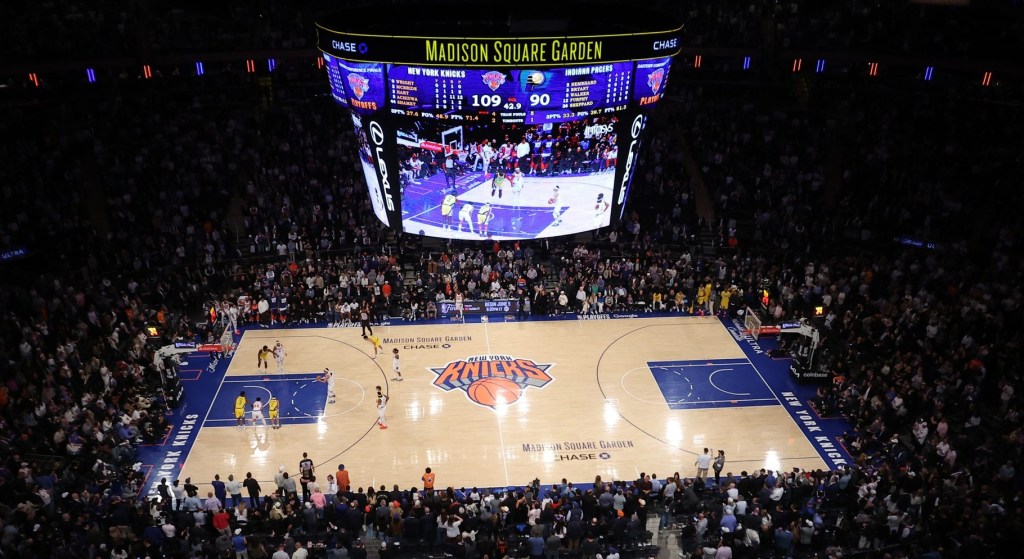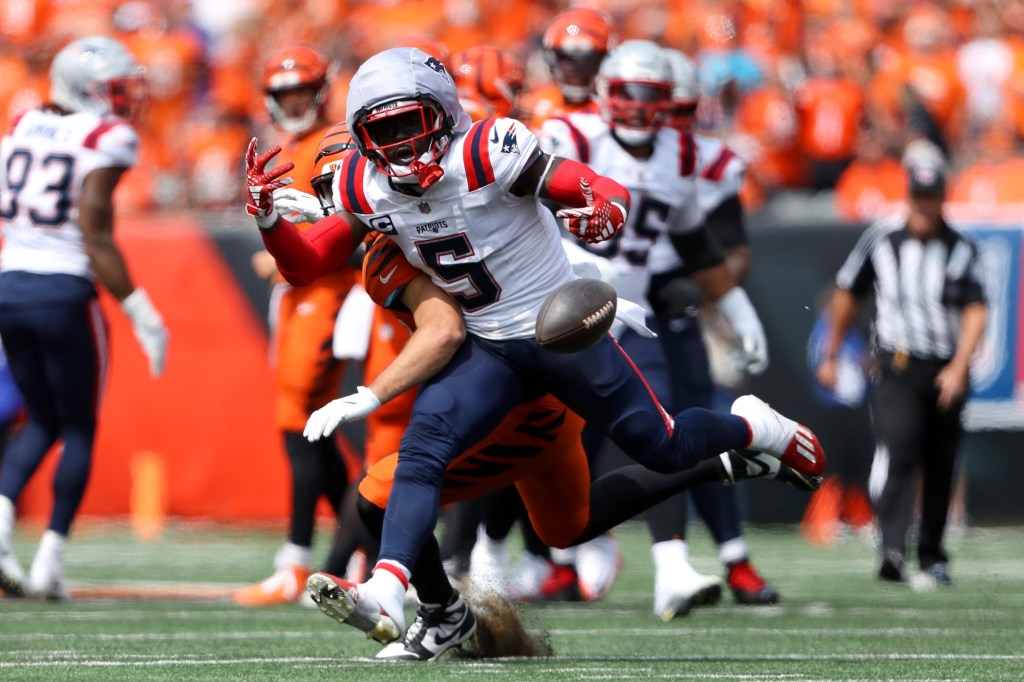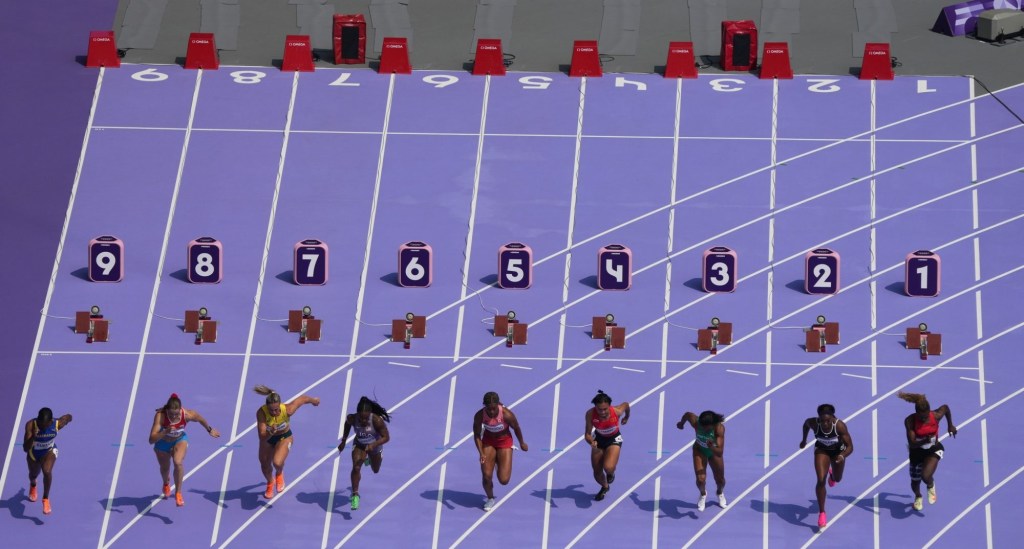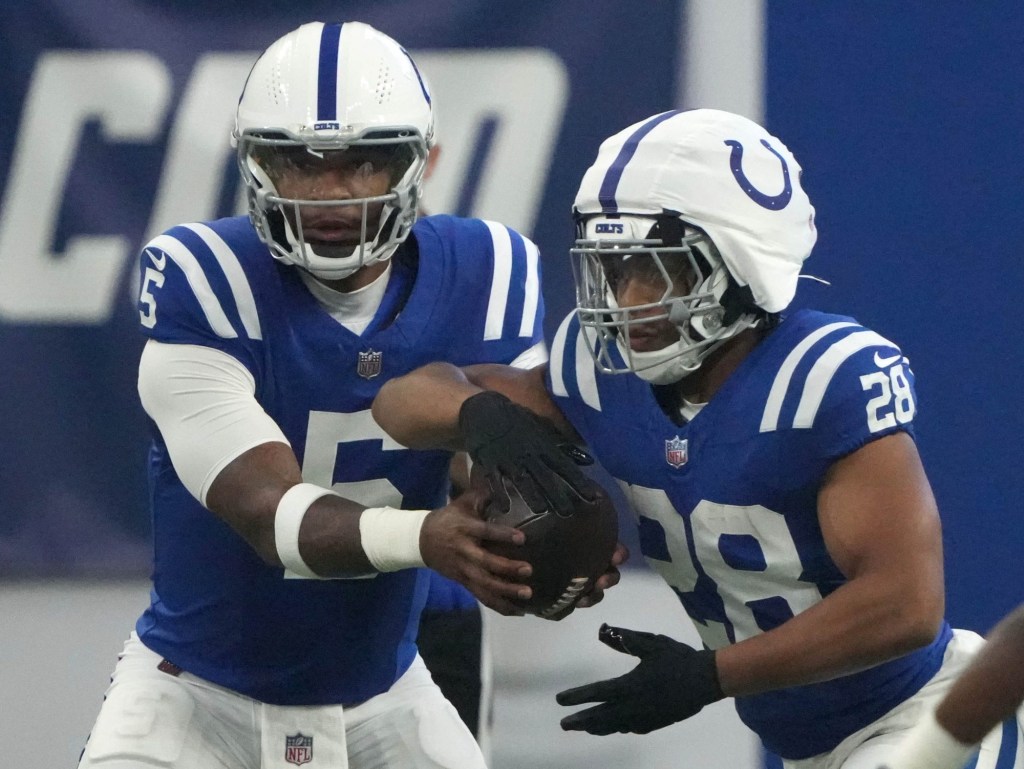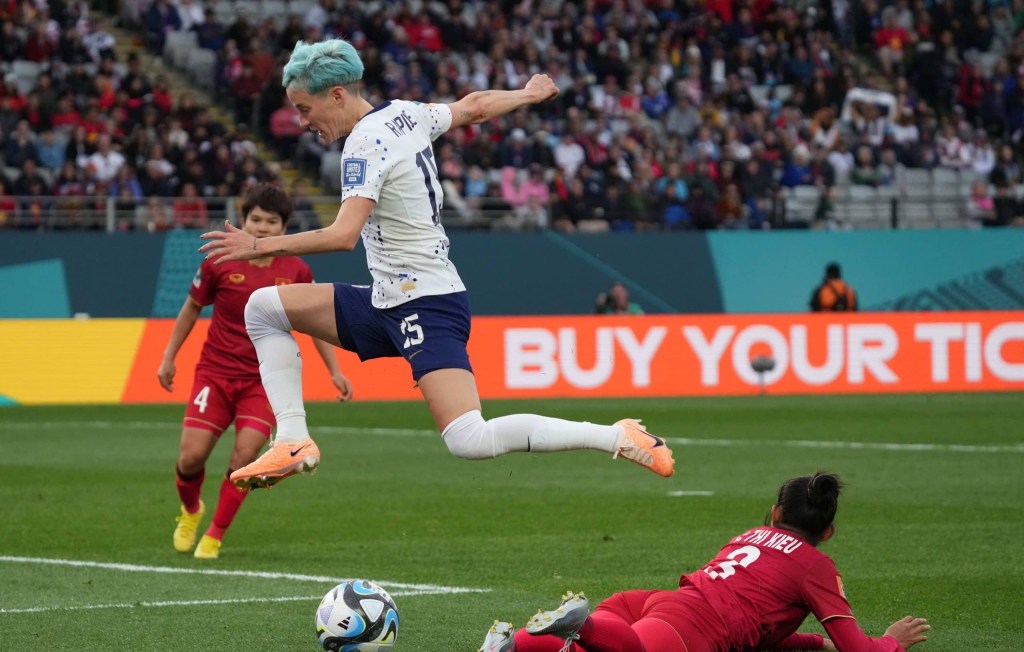On November 6, 2016, the Anaheim Ducks hosted their Military Appreciation Night versus the Calgary Flames. During the pregame ceremony, Lance Corporal Brandon C. Benningfield was joined on the ice by Corporal Nero.
Little did the crowd know that Nero was a military police patrol and explosive detector dog who was holding in his mouth the ceremonial puck. Once he made the puck drop, fans at the Honda Center went wild for the German Shepherd – as did social media.
Since Nero’s infamous puck drop, more clubs are working with animal organizations that have trained service dogs like him.
In August 2018, the New York Rangers added Ranger – a yellow labrador retriever – to its roster, becoming the NHL’s first-ever service dog.
The St. Louis Blues, Montreal Canadiens, Ottawa Senators, and New York Islanders followed suit – with the Minnesota Wild, San Jose Sharks, and Tampa Bay Lightning adding service puppies during the 2019 offseason, and more expected to come this season.
“These dogs are a key part of their teams and their team spirit – the fact that they’re all getting dogs is really exciting,” NHL CMO Heidi Browning said. “I wish I could say it was a top-down strategy, but it has really happened organically.”
Jamie Spencer first took notice of Coco’s Heart Rescue – a foster-based rescue with locations across Minnesota – through his child’s elementary school teacher, who volunteered there. The non-profit had adopted a litter of puppies and named each one after a different Wild player.
The teacher sent pictures of the Wild pups to Spencer, the Wild’s executive vice president of business development, who then showed them to Wayne Petersen, the team’s director of community relations and hockey partnerships. Inspired by what he saw, Petersen helped develop the Minnesota Wild Canine Calendar, which photographed players with several dogs from Coco’s Heart Rescue. The inaugural 2018 Canine Calendar sold out by early February and helped raise over $42,500 for charity. Both Coco’s Heart Rescue and the Minnesota Wild Foundation received checks for $21,423 during the first intermission of their game against the Vegas Golden Knights on February 2, 2018.
READ MORE: NHL Tunes Up Next Track Of Music Strategy
The 2019 Canine Calendar turned out to be equally successful, said Petersen, and helped foster a relationship with Secondhand Hounds, another dog-rescue business. On the heels of the 2020 campaign, the Wild began building their roster by inking a deal with Coco’s Heart Rescue and Soldier’s 6, a Minnesota non-profit group that trains service dogs for veterans with PTSD, to make Breezer their developmental project. Next year his clientele will come from a very different background, but Petersen knows that he and the Wild will have fond memories of grooming Breezer for his future.
“When Breezer’s in the office, our staff loves it,” Petersen said. “We have staff that can sign up for a chance to walk Breezer during the day or bring him over to their department – it’s great for the morale of the staff. But at the end of the day too – next year at this time when we pass Breezer off to Soldier’s 6 so he can get trained to be a service dog and then eventually end up in the hands of a well-deserving veteran, it’s gonna be all well worth it.”
The second team to bring a service dog onto its 2019-2020 roster was the Lightning, who added Bolt – a yellow Labrador puppy – on August 6. Born on March 31, he spent his first months with Southeastern Guide Dog, the largest guide-dog facility in the southeastern U.S. The team has been long-time partners with the facility, said Elizabeth Frazier, the Lightning’s senior vice president of philanthropy and community involvement.
Frazier says that Lightning have previously donated to Southeastern Guide Dogs as well as host fundraising events with them. After holding an annual walkathon, it dawned on Frazier to deepen the Lighting’s relationship with Southeastern Guide Dogs. Missy Davis, Tampa Bay’s senior manager of foundation and finance, offered to host a dog for 12-to-18 months – and that’s how Bolt became a Lightning.
“Everyone opens their heart right away when they see him, so it does something for the culture,” Davis said. “It breeds a little bit of new life around places you’d never really have thought before. But knowing that everybody’s contributing to something that’s gonna go back out and help someone live an independent life is pretty significant.”
To start the 2019 offseason, the Sharks resigned 6’0, 190-pound defenseman Erik Karlsson to an eight-year deal on June 17. Four days later, they landed another big-agent signing – Finn, a 1’4, eight-pound yellow Labrador puppy. His signing was the latest in San Jose’s efforts to raise awareness towards organizations with assistance dogs.
READ MORE: NHL Skates Out New Effort To Help Players Grow Their Brands
In December of 2017, Canine Companions For Independence – a non-profit organization that specializes in assistance dogs – was a $50,000 recipient of the Sharks Foundation Community Assist Grant as a part of their Season of Giving Campaign. The organization was then honored on December 21 before the Sharks-Canucks game when Lake, a Canine Companion service dog, dropped the puck alongside her owner.
After that encounter, Canine Companions continued to work with the team, said Sharks Manager of Event Presentation Tina Divilio. They’ve held 50/50 raffles together, raising as much as $17,000 in one occasion.
Divilio has also been utilizing social media to promote Finn’s impact. Since creating the @SharksPup Twitter profile in June, it’s grown to nearly 6,600 followers – but the reasoning behind having Finn on the team has not been lost, says Divilio. Canine Companion is tagged in Finn’s Twitter biography and it provides frequent updates regarding his training regimen.
“We’re just so grateful to have this relationship,” said Michelle Williams, the public relations and marketing coordinator for Canine Companion’s Northwest Region. “They encourage their supporters to donate if they’re interested or learn more about our mission. So it’s just really been a wonderful relationship that we’re excited to continue for years to come.”
The combination of the teams providing their fans a cause to rally behind as well as the cute factor of the dogs themselves will only spark more discussion around the efforts, said Columbia University Professor and sports management consultant Joe Favorito.
“You want to speak to a large audience and inspire casual fans to get involved, and aside from the cause itself, dogs usually inspire people to act in a positive and proactive manner,” he said. “More and more teams are finding that fans connect with players and their pets, especially dogs, and this seems to bring together lots of touchpoints. It’s hard to see how it couldn’t be a step forward in engagement.”
Even with the 2019-2020 season starting, more NHL teams are continuing to get involved with these types of animal organizations. On September 9, the Arizona Coyotes became the fourth team this summer to add a service dog by picking up Luna, an 18-week-old black Labrador retriever. She came over from the National Assistance Dogs Inc. and will train with the train for one season before leaving to support veterans struggling to adjust to post-war life.
Browning hopes to eventually see all 31 NHL clubs adopt a service dog. Given the immense interest from both fans and teams, her wish doesn’t sound that far-fetched.
“That unconditional love and emotional connection that people have with their dogs is similar to that connection people have with the sports that they love,” she said.
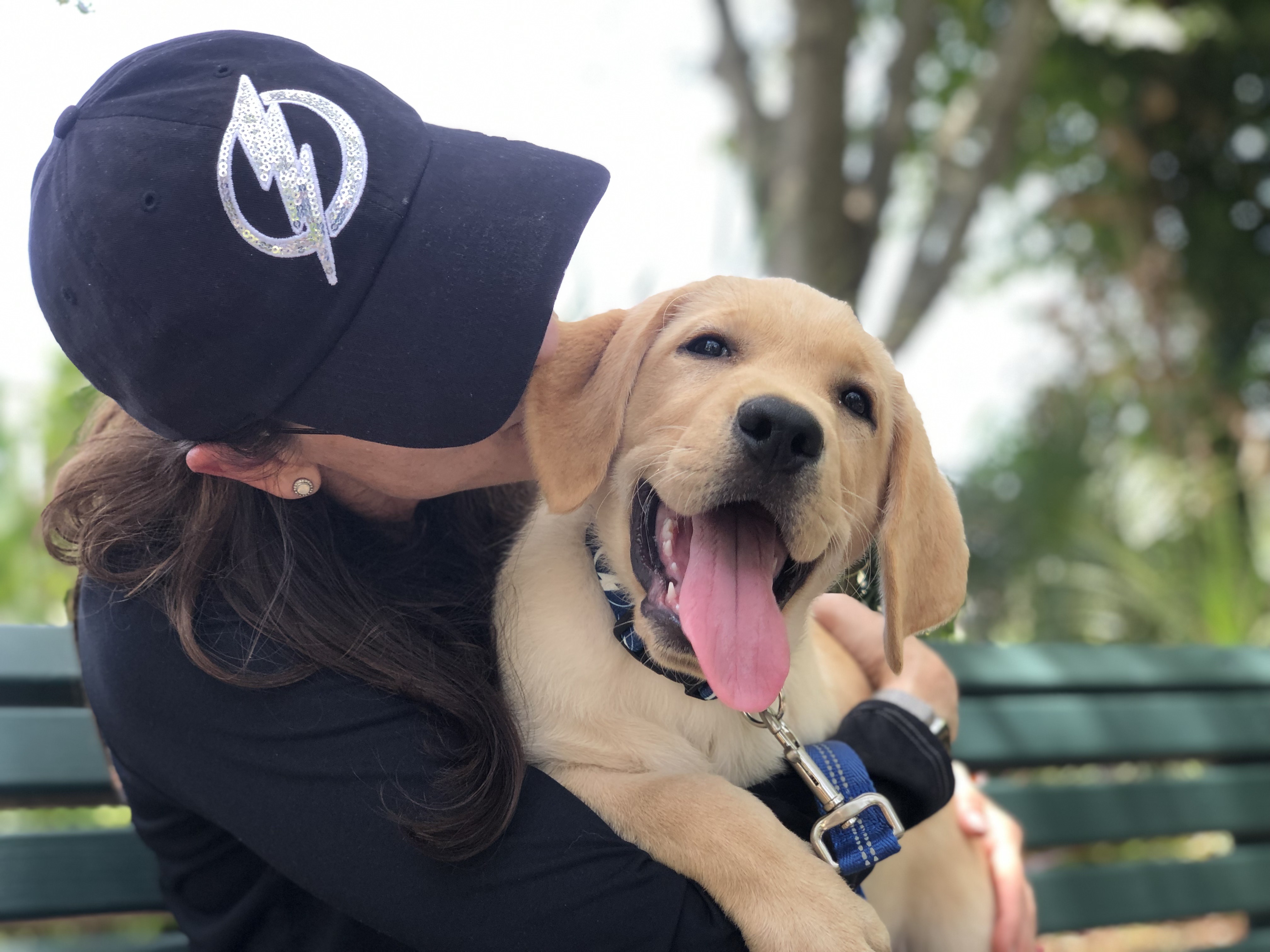

![[Subscription Customers Only] Jul 13, 2025; East Rutherford, New Jersey, USA; Chelsea FC midfielder Cole Palmer (10) celebrates winning the final of the 2025 FIFA Club World Cup at MetLife Stadium](https://frontofficesports.com/wp-content/uploads/2026/02/USATSI_26636703-scaled-e1770932227605.jpg?quality=100&w=1024)

